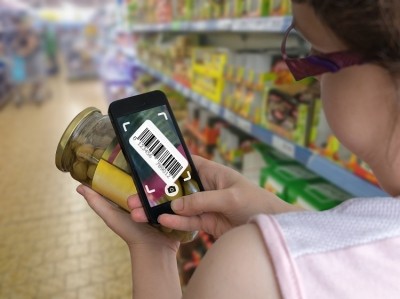‘World’s first’ digital sandwich: How next-gen tech is tracing every ingredient in, and between, the bread

In the UK, many would perceive sandwiches to be the greatest thing since sliced bread. According to the British Sandwich & Food to Go Association, approximately four billion sandwiches are purchased (pre-COVID) from UK retail or catering operators annually.
With a sandwich costing an average of £2.14, it is estimated consumers spend more than £8bn per year on the classic British staple. Employing more than 300,000 people across the country, the sandwich market continues to grow by over 4% per year.
Running alongside this trend is increased consumer concern for food safety. Recent crises and quality issues – from the horsemeat scandal of 2013 to the death of 15-year-old Natasha Laperouse, who died after an allergic reaction to a mislabelled Pret A Manger baguette – have undermined confidence in the production of readymade foods.
Consumers are also more aware of other ethical concerns surrounding food production, such as the responsible sourcing of ingredients.
In response to these concerns, a consortium of UK universities, tech, food and manufacturing firms are developing a platform to ‘irrefutably’ track all components of a sandwich with the help of IoT, blockchain, and artificial intelligence (AI).
“Sandwiches are complex. There are multiple ingredients with multiple provenance chains culminating in a merged product ahead of being sold,” director of IoT Solutions at IMS Evolve, Ed Porter, told FoodNavigator.
IMS Evolve is providing the IoT component of the project. Other Digital Sandwich consortium members include the University of Lincoln, and SME sandwich manufacturer Raynor Foods.

“There are multiple ingredients in a sandwich like butter, bread, ham, cheese, mustard and so on, which means that this was an opportunity to create a sophisticated solution,” said Porter.
Giving sandwiches a ‘digital identity’
The goal of the ‘world first’ project is to track and trace ingredients along the entire sandwich supply chain, from primary production to retail. And recently announced funding of £4m from UK Research and Innovation’s (UKRI) Better Made in Britain scheme will help Digital Sandwich do just that.
From a technology standpoint, the primary challenge facing the consortium is to develop a solution that is universal, IMS Evolve’s Porter explained.
“There are many different supply chains, different types of food, and different types of changes the food goes through, multiple phases of merging ingredients. Creating a solution that is going to work everywhere is the main challenge.”
Indeed, compared to IoT solutions for other non-food products, the Digital Sandwich project is unique. “A lot of things that are currently tracked don’t change like money, packages and individual items,” Porter explained.
“Food is something that evolves and changes form; different ingredients are added and merge at different points, even down to the ingredients in the bread, let alone the contents of the sandwich.”
Another challenge, Porter revealed, is that there are ‘thousands of people’ in the supply chain and most of them are currently ‘very light’ on technology.
“We need to solve these problems and address how we operate in the simplest environments as well as the more complex ones. The solution needs to be able to scale based on the available data.”
Porter clarified that giving sandwiches a digital identity does not mean developing a digital twin. “A digital twin is based upon data that exists already and is then copied and augmented,” he told this publication.
“For this project, there is no digital version of these things, and we are effectively creating a digital version of them through scanning and recording.”
Expansion plans
Once developed, the project leaders expect the software to be extended to other offerings in the food sector, including ready meals and beverages.
“The principles established in developing this new platform are intended to be scalable to the entire food industry, and adaptable to include other industries with similar resourcing patterns,” noted the consortium.
Raynor Foods, for example, is hopeful the project to benefit SME players in the food sector. “The project will open up this new technology to SMEs in the food sector, bringing the benefits of securely sharing information up and down the supply chain to the largest single sector of companies,” said Raynor Foods chair Matt Raynor.
“This technology will be a massive benefit for the companies concerned and for UK plc.”

























